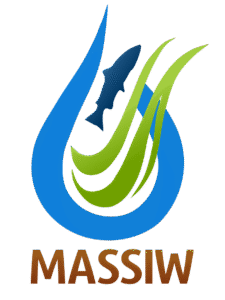Developing Acid Sulfate Soil Management for Improved Water Status – MASSIW
- Project research area
- Geoenvironment Geoscience Information Solutions
- Project duration
- 01.02.2025 - 31.01.2028
- Website
- https://www.interregaurora.eu/approved-projects/massiw/
Introduction




In the project, we work together for improved water quality and secure harvests through sustainable management of acid sulfate soils.
Leaching of acids and metals from acid sulfate soils (ASS) causes similar challenges for Finland and Sweden within the Aurora programme area. These challenges include acidification and metal contamination of soils and waters, leading to biological degradation such as loss of aquatic biodiversity, impaired fish reproduction, and reoccurring mass fish kills. As a result, many water bodies fail to achieve the good chemical and ecological status required by the EU Water Framework Directive and pose a challenge in the implementation of the new EU Nature Restoration Law.
The severe environmental problems associated with ASS arose during the first half of the twentieth century due to intensive land use. Since then, knowledge of these soils has steadily increased through various research efforts, and different mitigation measures have been developed and tested in Finland and Sweden. Despite these efforts, the problems persist in the Aurora programme area, largely due to conflicts of interests between land use and environmental protection. Within the MASSIW project, the aim is to intensify cooperation and dialogue between landowners and other stakeholders to demonstrate what can be done to improve the situation.
The MASSIW initiative will contribute to ultimately reach a solution to this complex and long-lasting environmental problem in the Aurora programme area, by producing common socioeconomically viable management solutions to preserve the use of ASS, including climate change adaptation, while minimizing harmful leaching. This will lead to a win-win for land users and the environment. Hence, the project ultimately supports both local production and helps achieve goals in key EU directives. This will be achieved via an innovative approach including in-depth cross-border sharing of experience and knowledge between key academic and governmental organisations, using and synthesising results and experiences from previous projects, integration of social and natural sciences, and closing the gap between academic research and practical work in the field.
Partners: Geological Survey of Sweden, Linnaeus University, The County Administrative Board of Västerbotten,
Centre for Economic Development, Transport and the Environment
The coordinator of the project: Åbo Akademi
Funding authority: Interreg Aurora, Region Västerbotten (Sverige), the Swedish Agency for Marine and Water Management (Sverige), the Regional Council of Lapland (Finland)
Contact person: Anton Boman
Return to projects